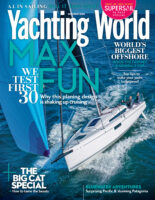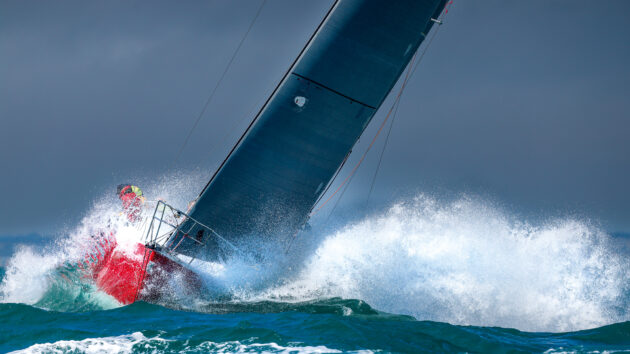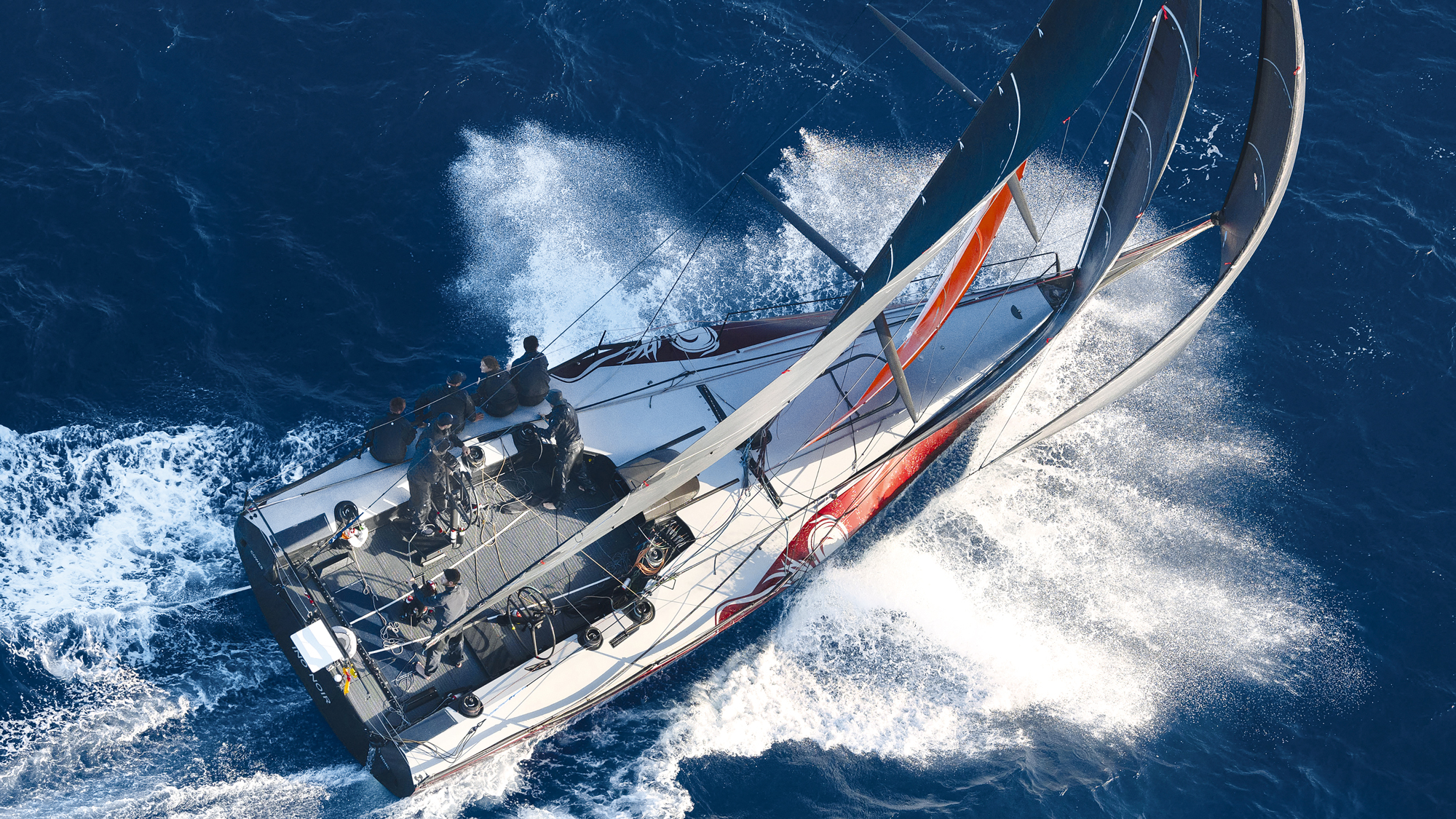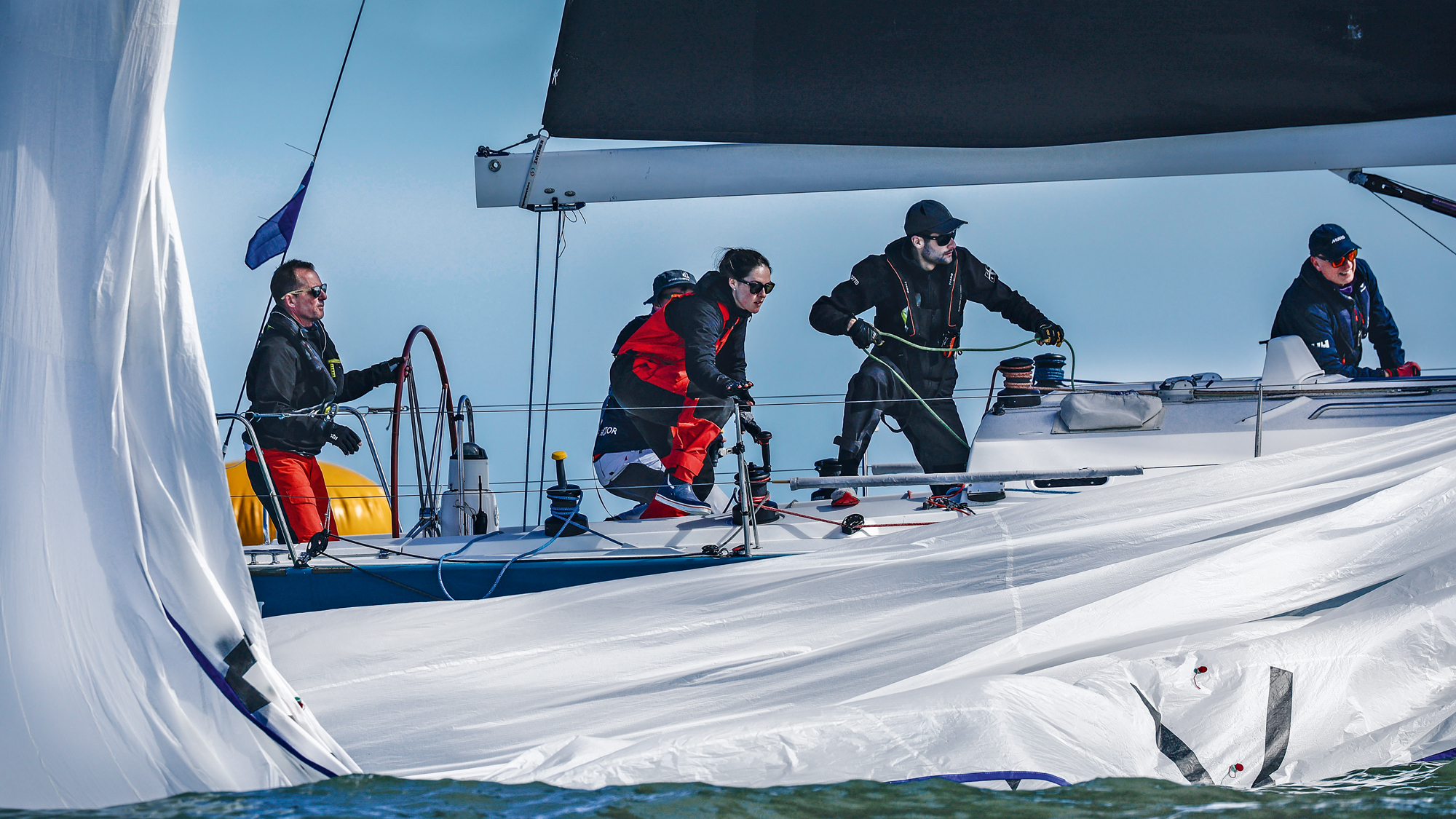Running a successful offshore campaign on a budget requires some smart thinking. Winner of the Rolex Fastnet Race Young Skipper trophy, Lawrence Herbert, shares some tips with Andy Rice.
Lawrence Herbert loves his offshore racing but he and the Corazon crew are campaigning their J/133 on a tight budget. Necessity being the mother of invention, the 28-year-old and the rest of his 20-something crew have come up with some ingenious cost-saving approaches with minimal or zero compromise to performance.
Herbert learned a lot about boat maintenance and reliability in the Caribbean where he worked for a few seasons on race boats including the J-Class yacht Lionheart. This hard-earned knowledge has equipped him well to run much of his own maintenance programme rather than paying others to do the work.
Having been forced to retire from the 2023 Rolex Fastnet Race due to an injury to a crewmember not long after a stormy start in the Solent, for 2025 Herbert was determined to leave no stone unturned in his quest to complete his first Fastnet.
“I must admit there were one or two stones still unturned before the start, and one was not replacing the main halyard. When I heard a big bang, my heart sank as I immediately looked skywards,” he recalls.
“Fortunately it was the Cunningham pinging accidentally out of its cleat, so no harm done. But mostly we worked hard to make sure Corazon was ready for anything, even if it ended up mostly being a light to medium airs race this year.”
Here are five of Herbert’s best tips for bulletproofing your boat on a budget.
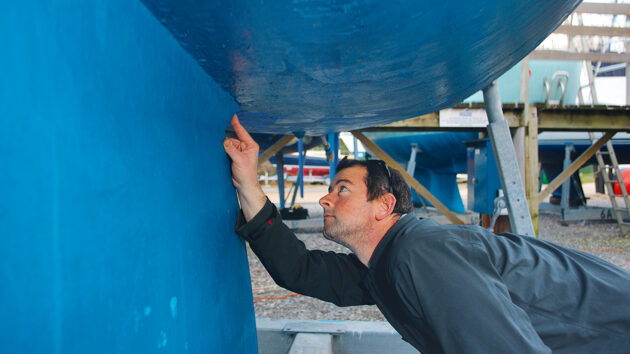
Faring a keel takes time so plan to sort big jobs like this well ahead of key races
Plan your schedule
Identify your next important race and build your preparation schedule back from there. In IRC you want to optimise your rating as much as possible for the route. You need to know when the rating deadline is for your race and make sure you get a rating slot as late as possible before that. For the Fastnet we had our sails re-measured two weeks before the start.
Sails shrink over time, and just by re-measuring a headsail we got an improvement to Corazon’s rating. Get all the big structural jobs out of the way during the winter when you’re not likely to be sailing so much. Do your hull and keel inspection super early in the year.
We did ours in January and had our rudder bearings replaced at the same time, which took longer than expected. Jobs like fairing the keel and the hull – all these things take time.
If you’re not sailing much for a few months, mouse all the control lines, sheets and halyards out and keep a bare deck while the boat isn’t being used. Even in the winter you’d be amazed how much UV damage can degrade lines. So take them home, put them through the washing machine with a small amount of fabric softener and vinegar (not soap!), and they’ll come out almost as good as new.
Winch maintenance
Elsa Swetenham is our winch maintenance expert on Corazon. She serviced our winches at the start of the year and again just before the Fastnet. For the early-season winch maintenance you want to put quite a bit of grease in there because it’s going to be there for a few months.
The downside of more grease is how much it slows down the winches, so unless you’re doing a really long passage like a transatlantic, for your pre-race winch maintenance you want to put in less grease. This means the winches will spin quicker, everything will run more easily, and all those small gains add up to a better performance on the race course.
Second-hand sails
If you’re mostly day racing on windward-leeward courses, your sail inventory is fairly well defined. But for a big offshore race like the Fastnet you have to be ready for pretty much all conditions and every angle. It could be blowing 33 knots at the start and three knots at the finish.
We can’t afford to buy new for Corazon, so we’re always keeping an eye out for second-hand sails. There aren’t many J/133s around, so we’re looking for sails that are a similar size but might require a bit of recutting.
Article continues below…
5 expert tips: How to be a yacht’s watch leader
Although he’s the crew boss and watch captain of 100ft Maxi yacht Scallywag in his own right, Pete Cumming is…
5 Expert Tips: How to recover from a bad race
You learn more from your mistakes than from your successes. But when you’ve had a bad result, how do you…
Find solutions
It can get wet down below and the last thing you want is for your cushions to get soggy. We could have paid a fortune for properly waterproof cushions, but instead we thought, why not get some waterproof bed sheets like they use in a care home?
So we bought a set online, put them over the top of the bunks and any water that comes down the hatch runs straight off and into the bilge. If you’re coming off watch you can jump into bed without anything getting soggy.
Budget electronics
We bought a Starlink satellite internet unit so we could download GRIB files and weather updates, as well as keep friends and family updated with our adventures out at sea. We didn’t have time to mount it properly so we ran the Starlink off the battery from a power drill. We’d get it out once every six hours for GRIB file updates and keep it running for just 15 minutes at a time.
We’ve worked hard to keep everything as simple and as low-power as possible. We used to have a clunky old chartplotter down below, so we stripped that out and now we have a fanless mini PC which has a really low power draw and integrates the B&G system with Expedition for weather routing software. Everywhere we can, we’re trying to make the boat as light and fast as possible – and save as much money as we can.
 If you enjoyed this….
If you enjoyed this….
Yachting World is the world’s leading magazine for bluewater cruisers and offshore sailors. Every month we have inspirational adventures and practical features to help you realise your sailing dreams.Build your knowledge with a subscription delivered to your door. See our latest offers and save at least 30% off the cover price.
Note: We may earn a commission when you buy through links on our site, at no extra cost to you. This doesn’t affect our editorial independence.

